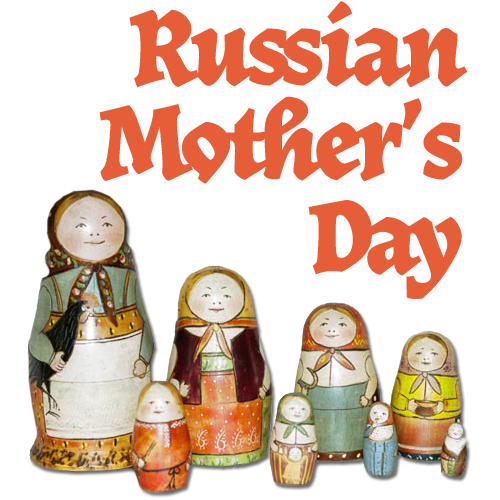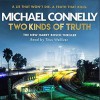Currently Reading






Find me elsewhere:
Ballard and Bosch: A Michael Connelly Mini-Binge
I managed to fall behind on 3 books by Michael Connelly over the course of the past 2 years -- how in the world did that happen? He's one of my most consistent go-to authors for reliably high quality crime fiction ... as well as for taking me right back to L.A., if only inside my head. So, high time to catch up, especially since everybody else whose reviews I trust seems to have already read and reviewed these three. In sum, I find that I'm mostly happy to have returned to what's come to be known as "the Harry Bosch universe" ... though the obvious question is how long Connelly is going to be able to keep Bosch going. Are we seeing a changing of the guard, with Renée Ballard and Mickey Haller -- and possibly Maddie Bosch -- eventually taking Harry's place? Last year, Connelly still said no, but 14 months on from that interview, I'm not sure that's still the answer he would give now. Ultimately, time and the next books will have to tell.
To take each book in turn:
 The Late Show (2017)
The Late Show (2017)
![]()
Renée Ballard's debut. Her character is based on a real cop, LAPD Detective Mitzi Roberts, who is an advisor to Connelly (and, I think, the Harry Bosch TV series), and who once worked the "late show" -- the night shift -- in the Hollywood division herself; so Renée's character and work environment comes with a lot of personal insight, and it shows (even if it's not Connelly's own, first-hand insight).
Obviously Connelly had to give Ballard a motivation to want to hang on to the cases we see her confronting in the first pages of the book instead of just handing them over to the relevant "desks" tasked with these kinds of crimes in daytime hours, and it just about works here -- but even in this first book I wasn't wholly convinced, and I can see several problems with this scenario going forward. To name but two: (1) Detectives on the "late show" simply do not handle cases to the end, and at some point the reasons Connelly gives Ballard for wanting to hang on to her initial investigations are almost necessarily going to stretch credibility -- in and of themselves as well as in terms of their overall frequency. (2) Anyone who's ever pulled several allnighters in a row, or existed for a sustained period on a maximum of 3-4 hours of sleep (with irregular sleeping times at that) knows that this sort of lifestyle is a virtually guaranteed shortcut to a crashing burnout -- and I don't mean the kind that can be cured by a few good nights of rest or an extended vacation. So I think at some point Connelly won't have any other option than making Ballard return to daytime hours if he wants to keep her storyline credible.
(show spoiler)That all being said, I mostly like Ballard -- she's smart, tough and straightforward; just what I want my heroines to be, not least if they are cops. She's also a bit reckless, though, and that's another thing that could turn out a problem eventually (not only for herself, for obvious reasons, but also in the meta-world, with Connelly's readers). The book's writing and plotting are Michael Connelly at his most atmospheric and empathetic, however, and the three interwoven cases / storylines are classic L.A. -- murder, corruption, fraud, and the shady side of Sunset Boulevard. What's not to like about that ... as crime fiction fodder, at any rate?
 Two Kinds of Truth (2017)
Two Kinds of Truth (2017)
![]()
Much as I liked Renée Ballard, I confess I was more than happy to return to Harry Bosch in this book, who still finds himself where recent events have landed him ... as a volunteer with SFPD (that's San Fernando Police Department, not San Francisco) in "the Valley" on the other (= northern) side of the mountain range separating the City of Los Angeles from, well, the San Fernando Valley. (And yes, "from the Valley" and "Valley girl / boy" still has a similar connotation as "hillbilly" does elsewhere in the U.S. -- or anyway, it still used to have when I was living in L.A. Despicable cliché aside, not that there's actually much justification to this, what with easily half of L.A.'s white collar workforce now living either in "the Valley" or elsewhere outside the City of Los Angeles proper, but I guess old stereotypes die hard.)
In essence, I was pretty happy, too, with the way Connelly managed to find a way for Bosch to keep his hand in "proper" police business even after his inglorious exit from LAPD -- permanently becoming an investigator for a defense attorney, even for his half-brother Mickey Haller, simply would not have suited him. Connelly overplayed the "experienced RHD detective" card a bit at the beginning of this book, I thought: surely, even in a small police department like SFPD that sees few murders by L.A. standards (which, let's face it, still doesn't necessarily mean "few" in absolute terms), officers securing a murder scene would not have to be told by a volunteer retired detective (a) to completely cordon off the entire scene and (b) to secure the scene by watching / looking outward, not inward, from their positions at the cordon. And if I didn't have reason to believe Harry was keeping himself fit for his activities at SFPD (because even clearing cold cases isn't exactly a 9-to-5 desk job), and if I hadn't also watched him bluff himself out of a critical situation often enough over the course of his career, I might have disbelieved the final "showdown"
(show spoiler)at the end of one of the book's interwoven investigative strands.
But by and large, it made sense to me for Harry to be involved in an investigation specifically making use of his advancing age by having him go undercover in a prescription drug smuggling sting as an allegedly addicted retiree; and it also made sense to me for his complicated relationship with the LAPD to play out the way it does here in an old case threatening to bite him in the rear. And although the final courtroom scene in that case has distinct overtones of Law and Order (which is not necessarily a statement on its verisimilitude -- though for the record, I love Law and Order), and it moreover relies on a near-deus-ex-machina-style coincidence and on a manipulation on the part of Haller bordering on the unethical and perilous to Harry to boot, I can't help but root for Haller and Bosch as a team, and for Haller to take down the bad guys in court at the end, every single time. As a side note, I was also happy for a former partner of Bosch's to make a surprise reappearance here.
So all in all, I was a pretty happy camper with this book, and given that the writing and plotting here is easily up to Connelly's best, I'd have been completely willing to overlook minor quibbles like the "should SFPD officers really need Harry Bosch to tell them how to secure a murder scene" bit ... if the book hadn't ended on a note playing straight into one of my growing grumbles with the series as a whole,
(show spoiler)Which leads me straight on to my review of the currently latest book in the series, and since one particular narrative strain (and especially the ending) of Two Kinds of Truth also sets up the core premise of Dark Sacred Night, I'm going to put the better part of my review of that book into spoiler tags, because there's no way I can address my quibbles with that book without also addressing those narrative elements -- they are in fact what gives rise to my quibbles.
 Dark Sacred Night (2018)
Dark Sacred Night (2018)
![]()
Given that Michael Connelly's fictional extension of L.A. is essentially a homogeneous universe in which all of his main characters meet sooner or later, it was only a matter of time until Renée Ballard would run into Harry Bosch. She does so here ... and lands another investigation that takes her out of her "late show" duties; a cold case that nobody is seriously pursuing, not even Lucía Soto, Bosch's final partner at LAPD, who is officially the lead investigator but who has been pulled into the Department's #MeToo task force.
And let's get this one out of the way first, if I had slight concerns where Connelly might be going with Ballard's "moonlighting at daytime" in The Late Show, they certainly didn't get any less here. I'm not a cop, but I have had, in my own life, more than one day-night-day(-night-day) sequence of the sort that Ballard is giving herself here, and I know for certain fact that there is no way she'd still have had the mental and physical alertness she is showing here on day 2, let alone on day 3 of that sequence. And yes, I realize that Ballard does indeed have moments where she doesn't exactly act like the sharpest knife in the LAPD's drawer. Those, though, don't even begin to do justice to the state of exhaustion she actually should be in; even less so would she have been fit enough to fulfill the critical role she keeps playing, especially towards the end of the book.
My bigger concern here is with Harry Bosch, though. And not so much on account of his age as such -- I actually liked how Connelly shows him literally being wrong-footed in a situation he had underestimated,
(show spoiler)
Character quibbles aside, Connelly probably couldn't write a thoroughly bad book if he tried, I'm still right back in L.A. with every word that he writes, and I actually did like the second (gang-related) narrative strain of Dark Sacred Night. And since a key character, Elizabeth Clayton, is a mother, I'm also claiming this one for the Russian Mother's Day square in 24 Festive Tasks.














 7
7  12
12 